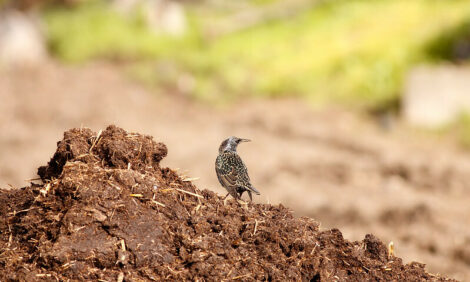



UK loses ‘A’ grade in global test of animal welfare leadership
The UK has dropped a grade in the global assessment of countries’ records on animal welfare due to Brexit parliamentary delays which have held up planned laws such as animal sentience and export regulation.The UK previously held an ‘A’ grade but has now dropped to a ‘B’ in the second revised edition of the Animal Protection Index (API) published by global NGO World Animal Protection, which assesses the animal welfare policies and legislation of 50 countries.
The index scores countries from A (being the highest score) to G (being the weakest score) according to their policy and legislation.
The API was first launched in 2014. The structure of the API was created by World Animal Protection alongside other animal protection NGOs, with consultation from academic experts. For this second edition of the API, the methodology was refined by World Animal Protection. This update in 2020 shows that many countries still lack strong animal welfare legislation. Some countries are still missing the basic legal framework needed to protect animals and a large number of countries still do not formally recognise animal sentience into legislation.
Shockingly, not one country has obtained an ‘A’ grade. The United Kingdom is rated highest along with Sweden and Austria all achieving a ‘B’ score. However, there is room for improvement in these countries too.
Since the last edition of the API, the UK’s progress has been held up by Brexit dominating parliamentary time, and the government failing to pass key laws.
This includes transferring the recognition of animal sentience from EU regulation to UK law, and reviewing legal protections afforded to invertebrate species such as cephalopods and decapod crustaceans to take into account new scientific evidence of their sentience.
Some countries, such as Morocco, Iran, Algeria, and Belarus, are still missing the basic legal framework needed to protect animals, and many countries do not formally recognise animal sentience in their existing legislation. The severe animal welfare concerns range from intensive farming, wildlife markets and associated trade which are all proven threats of disease outbreak, such as the most recent global epidemic, coronavirus.
World Animal Protection is calling on all governments to immediately improve their animal welfare standards, not only for the benefit of animals, but also to reduce the risk to public health.
Sonul Badiani-Hamment, World Animal Protection UK external affairs advisor said, “The UK government is failing to keep up with the latest science on animal welfare and has been treading water, making promises of new legislation on animal sentience that have not been met.
“The UK is a nation of animal lovers and the government must reflect this in their work and continue to improve animal protections if it is to ensure we regain our top rating. We need stronger laws protecting animals in farming, in entertainment and in homes. This is particularly important as the UK leaves the EU, to ensure that hard-won protections are not lost in the rush to agree new trade deals.”









